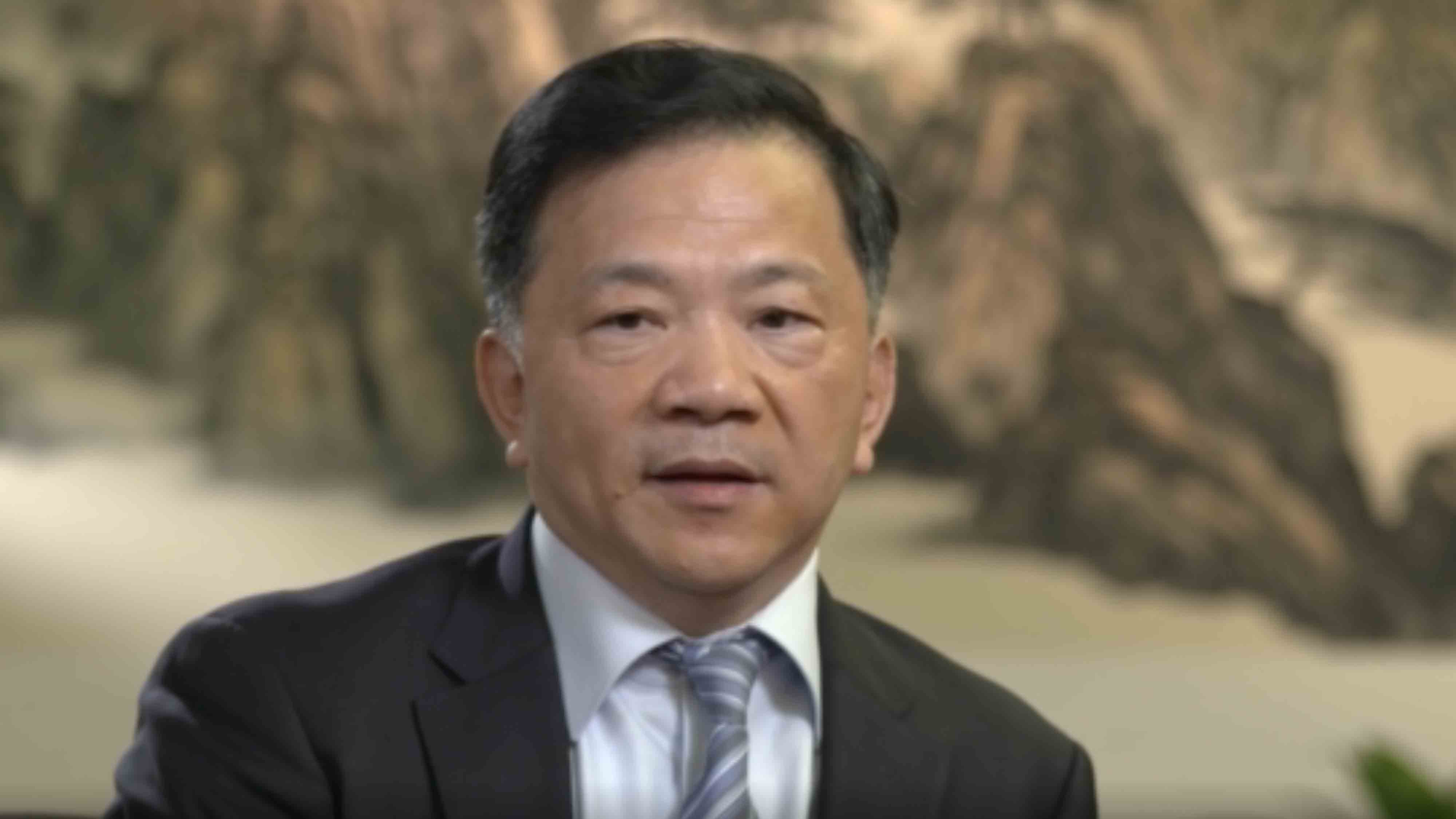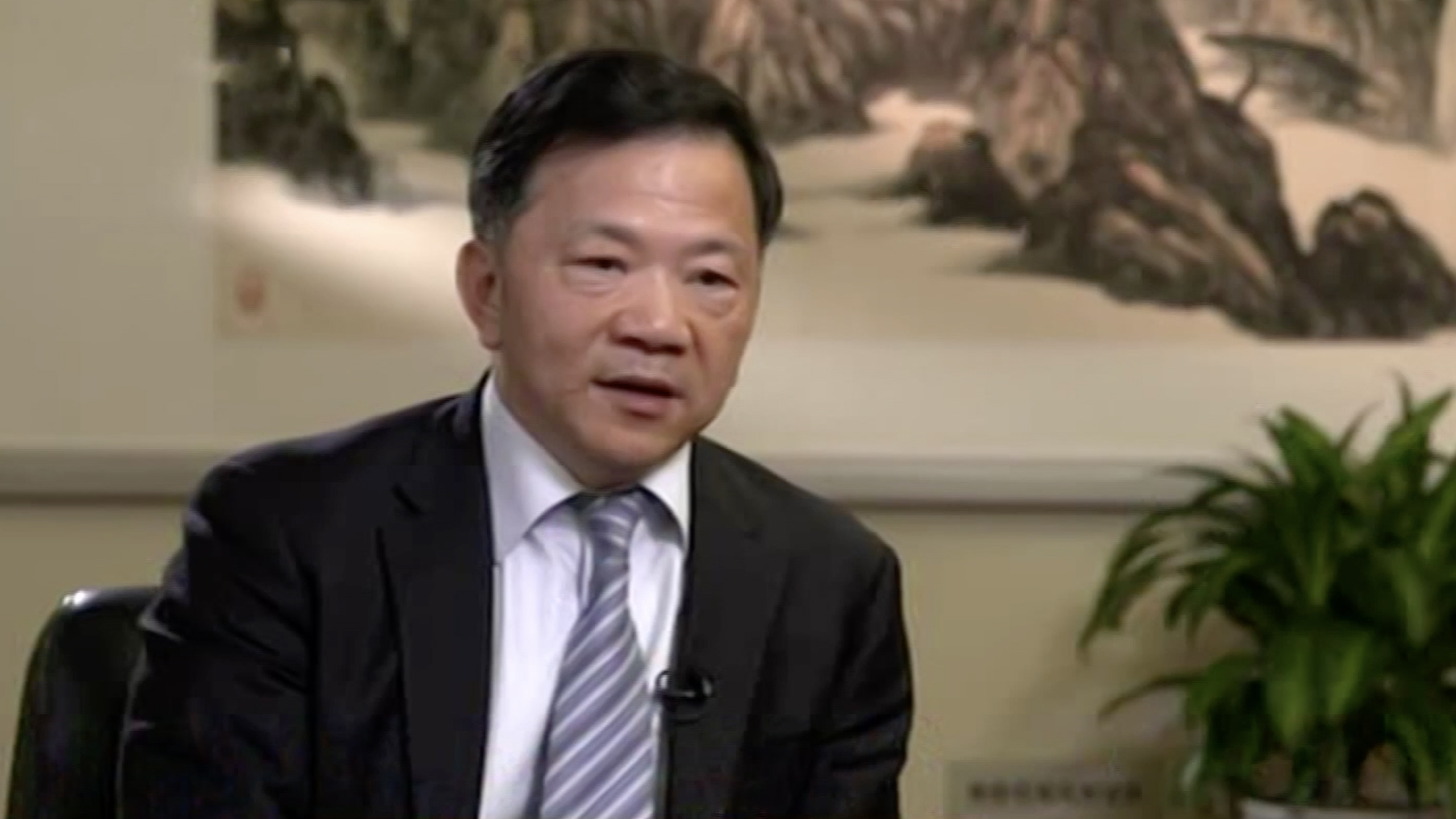02:09

Certain Western media's coverage of the unrest in Hong Kong has been largely biased as they selectively ignored the violent actions of protesters, said Shen Haixiong, president of China Media Group (CMG), in a recent interview with TGCOM24, an Italian television channel. CMG is a state broadcaster conglomerate and the parent company of CGTN.
"I think many western media organizations are 'instilling biases' through the coverage of the unrest in Hong Kong," said Shen, responding to a question about how he sees Hong Kong's situation and world media's overall coverage of the issue.
Shen said some media organizations released a few clips allegedly showing the police "attacking" the protesters, while in fact the police were just defending themselves from protesters who were attacking both them and other innocent residents.
"Hong Kong is governed by the rule of law. How can the police just randomly attack young students?" Shen questioned. "The truth is that it's those young people who made the first move and committed crimes."
00:48

China's domestic economic outlook
All eyes are on China as it is the world's second largest economy. Shen also talked about China's economic outlook in the interview, regarding worries that China's economy is slowing down.
Shen, who attended last week's Central Economic Work Conference that reviews domestic economy annually, reassured that China's economic outlook is still promising.
He pointed out that in 2019, China's GDP, the total value of a country's output, has an increasing rate of 6.1 percent, while that of the United States is expected to be 2.4 percent and Japan's at around 0.9 percent.
China's growth rate is quite competitive globally even if you solely look at the growth rate, as the added part of this year GDP almost equals the whole year's production value of Poland or Switzerland, he said.
China's GDP this year, Shen said, will probably reach 100 trillion yuan (about 14.3 trillion U.S. dollars), which averages 10,000 U.S. dollars per capita. The number is quite significant, Shen said.
China's international cooperation
Besides domestic economic situation, Shen also talked about China's future cooperation with other countries, especially with the United States and Europe.
Just hours before the interview, China and the U.S. reached the first-stage trade agreement, which has been on-and-off for a long time.
Shen said that China is glad to see this initial outcome of this long stretch between these two countries, as it proves that only mutual cooperation can bring a win-win situation.
He said that despite trade frictions, China's overall export was not severely affected. Firstly, the portion of export to the U.S. only takes up 20 percent of China's export market, while that loss has been partially compensated by the increase in trade with emerging economies with rapid development.
Shen stressed again the importance of multilateral cooperation among world's countries for overall development, which is rooted in Chinese culture.
He opined that China has huge market demands, which will only grow as time passes. One example would be China's urgent needs for pork and soybeans, while the U.S. farmers have surplus.
He called for other countries, especially those doing businesses, focusing on cooperation that will truly prosper their markets and benefit their people.
Belt and Road Initiative with Italy
Shen also applauded the historic decision of Italy to join China's Belt and Road Initiative officially in March, the first country to do so in the Group of Seven (G7).
He said these two countries have a lot of areas for cooperation, particularly Italy's food and creative industries.
Shen also underlined that Italy should focus on doing business without involving other irrelevant factors in order to succeed.
Shen hopes Italy can continue the momentum and foster practical businesses with China.